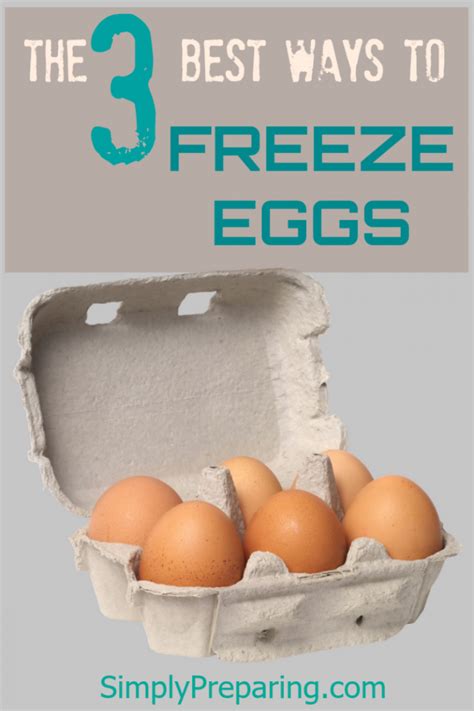How To Freeze Eggs: A Comprehensive Guide for Home Cooks
Freezing eggs is a fantastic way to preserve their freshness and extend their shelf life. Whether you have a surplus from your backyard chickens or simply want to avoid food waste, knowing how to freeze eggs properly can be a lifesaver. This comprehensive guide will walk you through the process, ensuring your frozen eggs retain their quality and taste.
Why Freeze Eggs?
Freezing eggs offers several key advantages:
- Extended Shelf Life: Fresh eggs typically last 3-5 weeks in the refrigerator. Freezing extends this to several months, minimizing waste.
- Cost Savings: Buying eggs in bulk and freezing portions can significantly reduce grocery costs.
- Convenience: Having a stash of frozen eggs on hand is perfect for quick meal preparation, especially when you're short on time.
- Preservation of Excess: If you have more eggs than you can use, freezing prevents spoilage.
Methods for Freezing Eggs: Which is Best for You?
There are two primary methods for freezing eggs: freezing whole eggs and freezing egg whites and yolks separately. The best method depends on your intended use.
1. Freezing Whole Eggs
This method is simplest but may result in a slightly altered texture after thawing. It's ideal for uses where texture isn't critical, such as baking.
Step-by-Step Guide:
- Crack and Whisk: Crack the eggs into a bowl and whisk them thoroughly.
- Add Salt or Sugar (Optional): Adding a pinch of salt or a tablespoon of sugar per cup of eggs helps maintain their texture.
- Portion and Freeze: Pour the whisked eggs into freezer-safe containers or ice cube trays. Leave some headspace to allow for expansion.
- Label and Date: Clearly label the containers with the date to ensure you use the oldest eggs first.
2. Freezing Egg Whites and Yolks Separately
Freezing egg whites and yolks separately is recommended for recipes that require specific ratios of each, like meringue or hollandaise sauce. This method helps maintain better texture post-thawing.
Step-by-Step Guide:
- Separate: Carefully separate the egg whites and yolks into separate bowls.
- Whisk (Optional): Lightly whisk the whites and yolks.
- Portion and Freeze: Transfer the whites and yolks into separate freezer-safe containers or ice cube trays. Again, allow for expansion.
- Label and Date: Clearly label each container with the contents (egg whites or yolks) and the date.
Thawing Frozen Eggs
Proper thawing is crucial for maintaining the quality of your frozen eggs.
- Refrigerator Thawing: This is the safest and recommended method. Transfer the frozen eggs from the freezer to the refrigerator overnight or for several hours to thaw completely.
- Cold Water Thawing (For Urgent Needs): Place the sealed container in a bowl of cold water, changing the water periodically until thawed. This method should only be used if refrigerator thawing isn't feasible. Never thaw eggs at room temperature.
Tips for Success
- Use Fresh Eggs: Start with the freshest eggs possible for the best results.
- Freezer-Safe Containers: Opt for airtight, freezer-safe containers to prevent freezer burn and maintain quality.
- Don't Overfill: Leave some headspace in the containers to allow for expansion during freezing.
- Proper Labeling: Clearly label and date all containers for easy identification and first-in, first-out usage.
FAQs: Addressing Common Queries
Q: How long can I keep frozen eggs?
A: Frozen eggs can be stored for up to 12 months, although their quality may begin to decline after that time. Use them within a year for optimal results.
Q: Can I refreeze thawed eggs?
A: No, once thawed, eggs should not be refrozen. This can significantly compromise their quality and safety.
Q: Can I use frozen eggs in all recipes?
A: While frozen eggs work well in many recipes, they might not be suitable for dishes where texture is paramount, such as fried eggs or omelets. They are better suited for baking or dishes where the eggs are cooked thoroughly.
By following these steps, you can confidently freeze eggs and enjoy the convenience and cost savings they offer. Happy cooking!
